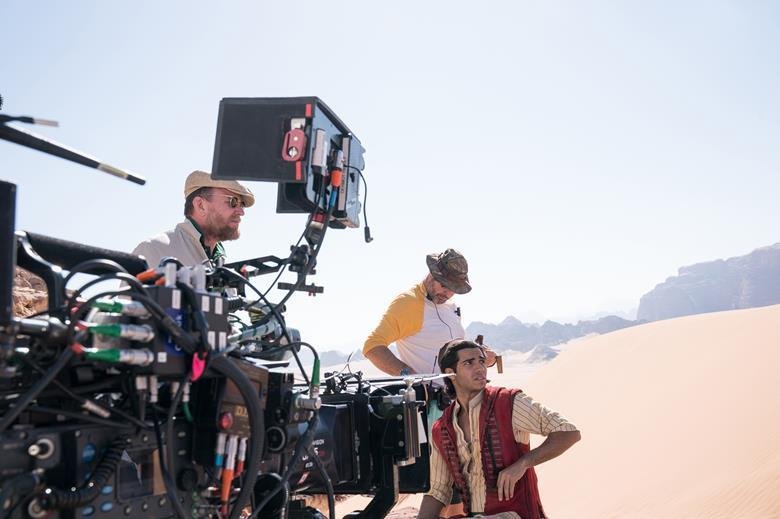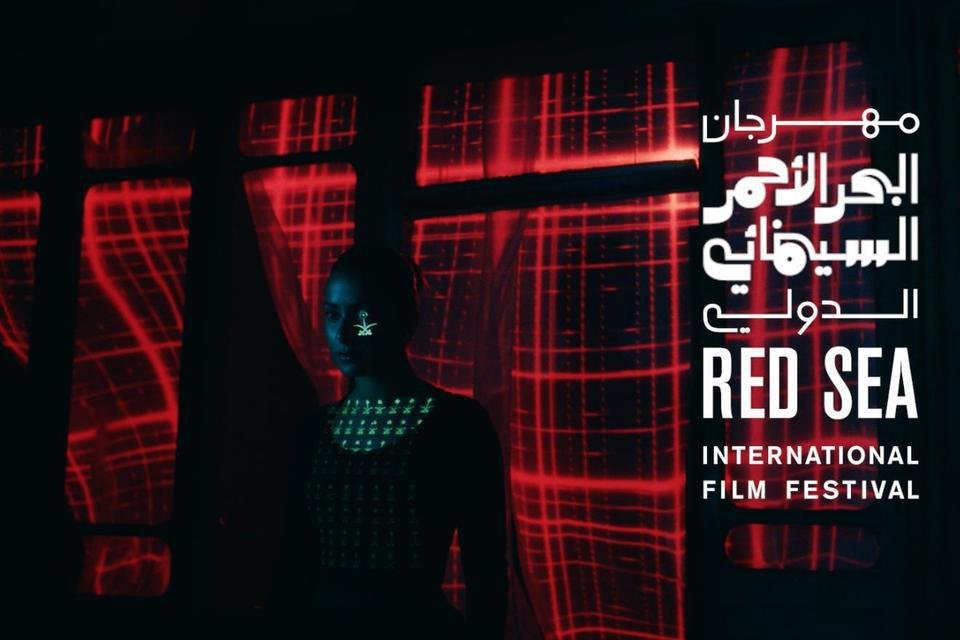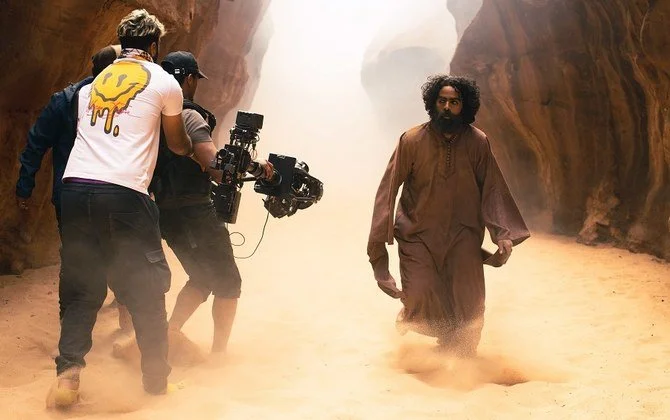Saudi Arabia’s Arts and Film Industry: An Evolution
Photo credit: screendaily
Over the past decade, Saudi Arabia’s arts and film industry has undergone a remarkable evolution. Long known for its religious conservatism and restrictions on public entertainment, the Kingdom is now actively supporting and investing in the arts, cinema, and creative industries as part of Crown Prince Mohammed bin Salman’s Vision 2030 program which has three primary themes: a vibrant society, a thriving economy and an ambitious nation.
The transformation began in 2017 when Saudi Arabia lifted its 35-year ban on public movie theatres. Since then, AMC and VOX Cinemas have opened multiplexes screening the latest Hollywood and Arabic blockbusters. By 2030, Saudi plans to have over 350 cinemas with around 2,500 screens. Cinema was once deemed a threat to religious and moral values, but is now seen as an engine of economic growth and part of the nation’s modernisation.
Along with cinemas, Saudi has invested $64 billion in developing its entertainment and cultural sector. Massive theme parks like Qiddiya are under construction near Riyadh, while live music, comedy shows, and theatre productions that were once prohibited now regularly take place. The Kingdom hosted its first ever concert by a female singer – Emirati pop artist Ahlam – in 2017.
The arts are also flourishing with increased state support. Saudi Contemporary, the country’s first major recurring art fair, was launched in Riyadh in 2018. The same year, the King Abdulaziz Centre for World Culture (Ithra) opened in Dhahran, providing world-class arts and creative facilities. A Saudi pavilion showcasing local artists debuted at the Venice Biennale in 2019.
The growth of Saudi film has been equally momentous. Saudi’s first feature film Wadjda premiered internationally in 2013, followed by the acclaimed satire Barakah Meets Barakah in 2016. The Haifaa al-Mansour directed The Perfect Candidate (2019) marked the Kingdom’s first submission for the Academy Awards Best International Feature category.
Photo credit: Daily News Egypt
Homegrown films are now eligible for financial incentives from the Saudi Film Council, established in 2018. Over $64 million has already been given out, funding shootings, training workshops, and Saudi’s inaugural Red Sea International Film Festival in 2021. The festival’s Red Sea Fund aims to invest over $100 million in Arab productions.
Hollywood filmmakers are increasingly choosing Saudi Arabia as a backdrop for their productions, with projects like “Dessert Warrior” filming in stunning locations such as Neom and Tabuk, showcasing the country’s unique landscapes. Furthermore, the recent Blockbuster film “Kandahar” continues this trend, further securing Saudi Arabia’s position as a sought-after destination for international movie productions.
Saudi filmmakers are gaining global recognition, such as Mahmoud Sabbagh whose romantic comedy Barakah Meets Barakah won prizes at the Berlin and Dubai International Film Festivals. Meanwhile, the Saudi animation scene is booming with studios like Myrkott producing content for international markets.
The future looks bright for Saudi’s arts and film. With continued state support, relaxed regulations, and investment in creative infrastructure, the Kingdom is positioning itself as the Arab world’s culture and entertainment capital. Challenges remain, but the pace of liberalisation is astonishing. Where once there were no public concerts or films, now Saudi artists have unprecedented opportunities to connect with audiences at home and abroad. For both Saudi storytellers and audiences hungry for new media, this is an exciting time.
Photo credit: Arab News
In addition Saudi Arabia has also made significant strides in forging cultural and cinematic connections with other regions of Asia, collaborating with countries such as Japan, Korea, and Thailand to foster creative exchanges and support the growth of their respective movie industries. This cross-cultural engagement has led to the emergence of exciting new collaborations and the expansion of cinematic horizons across Saudi Arabia and Asia.
The Hong Kong Ambassadors Club actively fosters cultural exchange between Saudi Arabia and Hong Kong. Cross-cultural collaborations will enable both regions to continue expanding their creative horizons and pursuing a global platform for cultural dialogue.



